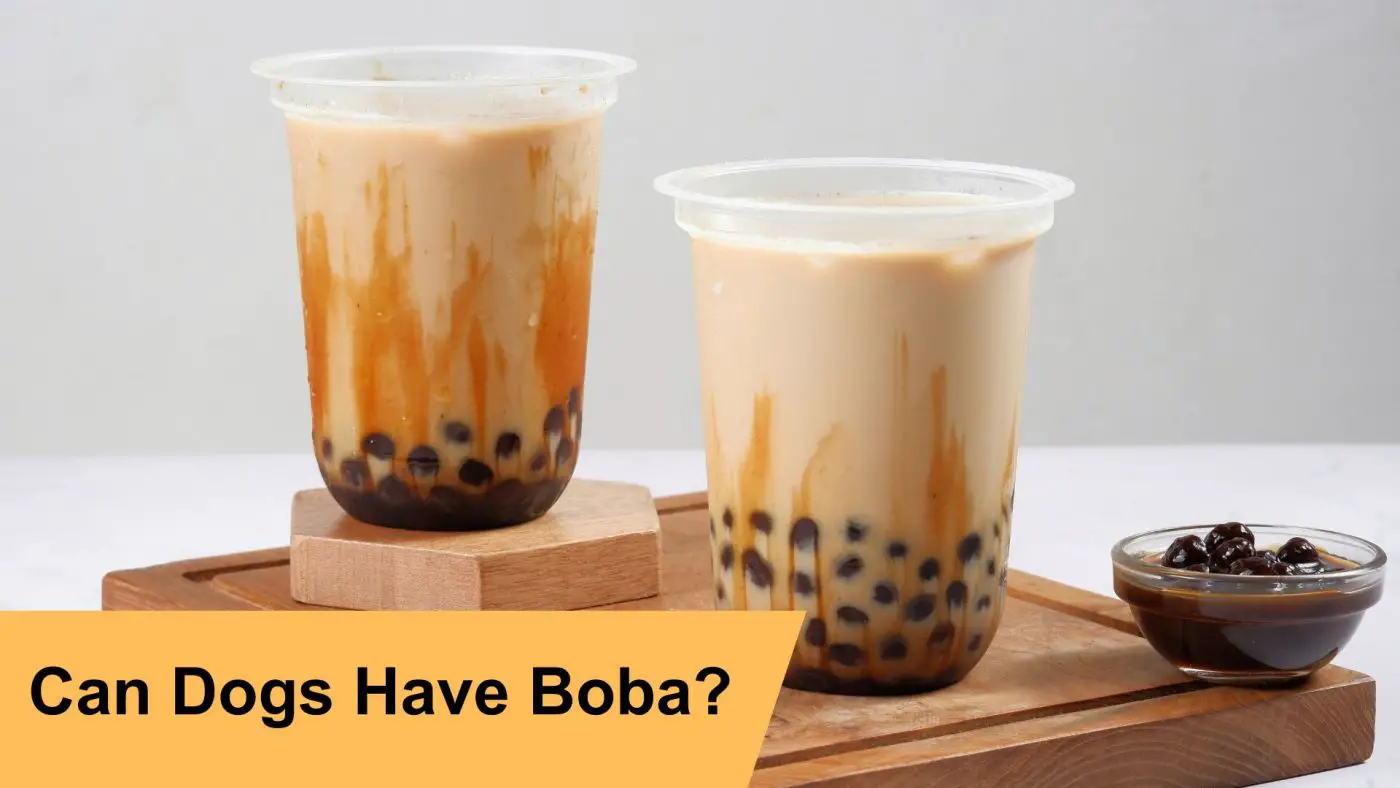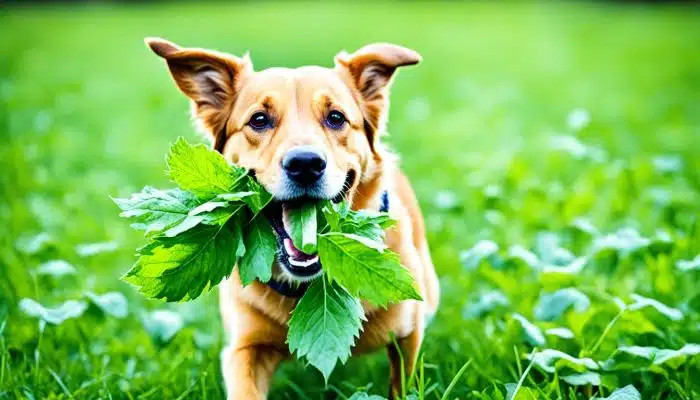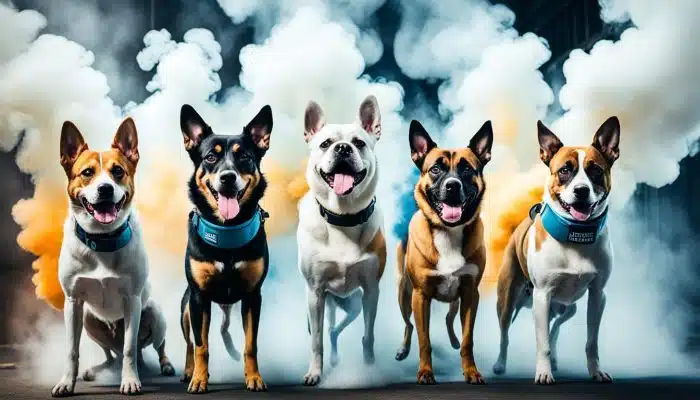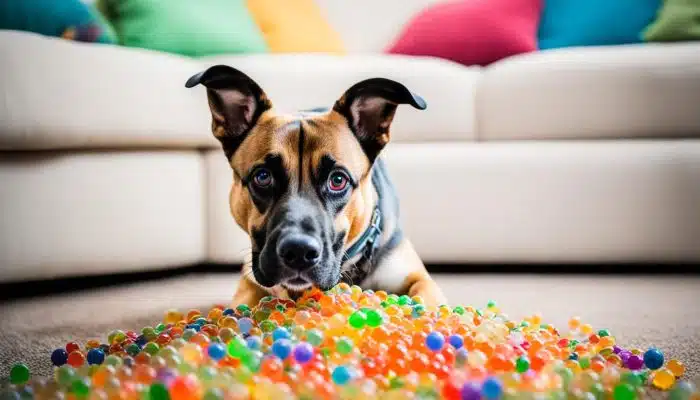Discover the sweet world of boba and its impact on your furry companion. This guide dives into whether sharing this popular treat with dogs is safe, unveiling healthier alternatives for pet-friendly indulgence.
Boba, also known as bubble tea, is a famous Taiwanese drink that has taken the world by storm. It is made with chewy tapioca pearls, which are boiled until soft and then added to a mixture of tea, milk, or fruit puree, and sweeteners. The drink is served cold and often topped with boba balls that burst in your mouth.
Boba became popular in the 1980s in Taiwan before spreading to other countries worldwide. Its popularity stems from its unique flavor combinations, the chewy texture of the two tapioca flour pearls, and its Instagram-worthy appearance.
Elevate your dog’s dining experience to new heights! Uncover expert tips and recommendations in our article on Healthy Habits for Hounds to ensure your furry friend enjoys a safe and scrumptious mealtime.
Key Takeaways:
- Boba Tea and Dogs: Boba tea, a beloved human treat made from tea, milk, sweeteners, and tapioca pearls, is not safe for dogs due to its high sugar content and potential choking hazards.
- Tapioca Pearls: The chewy tapioca pearls, a signature of boba tea, pose a significant choking risk and digestive blockage threat to dogs.
- High Sugar Content: Boba tea’s high sugar and artificial sweetener content, especially those containing xylitol, can lead to obesity, dental issues, and even toxicity in dogs.
- Safe Alternatives: Opt for dog-friendly drinks such as homemade fruit smoothies or herbal teas without caffeine, ensuring they are free from harmful sweeteners and additives.
- Immediate Action: If your dog accidentally ingests boba tea, monitor for symptoms of distress and consult your veterinarian immediately for advice and potential treatment.
- Preventive Measures: Keep boba tea and similar human treats out of reach of pets and focus on providing treats specifically designed for dogs to ensure their health and safety.
Can Dogs Drink Boba?
No, dogs cannot safely drink boba. While boba, or bubble tea, is a delicious treat for humans, it contains ingredients that are harmful to dogs. The high sugar content, artificial sweeteners like xylitol, and tapioca pearls present in boba can lead to obesity, dental issues, and even more severe health problems like hypoglycemia and liver damage in dogs. Additionally, the chewy tapioca pearls pose a choking hazard and could cause intestinal blockages. For your dog’s health, it’s best to avoid giving them boba and opt for dog-safe treats instead.
Raise the Question of Whether Dogs Can Have Boba

As a dog owner, it’s natural to want to share your dogs eat favorite treats it’s your furry friend. However, not all human foods are safe for dogs to consume.
When it comes to dogs eat boba though, the question arises: can dogs have to eat boba? Before answering this question, it’s essential to understand what ingredients make It’soba.
The drink typically contains tea (black or green), milk or fruit puree (depending on the flavor), sweeteners (often artificial sweeteners like corn syrup or excess sugar), and tiny tapioca pearls. Some boba shops also serve popping boba pearls – small balls of tapioca starch filled with flavored syrup that burst in your mouth.
While sharing food with our pets can be fun and exciting for them and us humans, it can sometimes lead to serious risks for pets like some dogs are either lactose intolerant dogs, or dogs who might face stomach problems after having milk-based drinks, including boba. So let’s explore whether it’s safe for dogs to eat boba is okay!
Can dogs drink boba?
The ingredients in boba

Boba bubble tea is a popular Asian drink that has recently gaining popularity in the West. It consists of tea, milk, fruit juice, and tiny tapioca pearls, also known as boba.
Some variations also include flavored powder or fruit juices to enhance the sweet taste. While this sweet beverage may be an excellent treat for humans, it raises the question of whether our furry friends can safely consume it.
Potential risks for dogs
The main concern about feeding boba to dogs is the tapioca pearls. These pearls are made from cassava roots and can pose a choking hazard to humans and pets if not consumed carefully. Moreover, if a dog drinks too much sugar from too many tapioca pearls or eats bursting boba, there is a risk of intestinal blockage which could lead to severe complications.
Another potential risk associated with human consumption of a boba drink is excess sugar consumption. Most commercial boba teas contain high amounts of sugar, which could cause canine obesity and even diabetes if consumed regularly by dogs.
Offering a clear answer
Generally, it’s best to avoid feeding your furry friend any human food containing excess sugar or additives that aren’t safe for pets. While raw honey might be okay for some pups in limited quantities, but it’s best not to include sugary treats in their diet.
So when it comes down to the question, “Can dogs have a boba drink?” the answer is no- they cannot” safely drink this “popular beverage due to its high sugar content and additive ingredients like flavored powder or fruit juices that could harm them. If you’re looking for safe dog drinks you can enjoy with your pet, consider making homemade options using fruits like strawberries or apples mixed with water or unsweetened coconut milk instead of regular milk tea with added sugars found at most boba tea shops.
Are there any safe alternatives?
Sipping Without Guilt: Healthy and Tasty Options for Your Four-Legged Friend
If you’re a boba milk tea lover, it’s understandable tyou’reu’d like to share this site’s drink with your dog. But don’t worry! However, as discussed in the previous section, boba milk tea drink might be the safest option for dogs due to some of its ingredients.
Your dog can enjoy plenty of other beverages without risking their health. One great alternative is homemade fruit smoothies.
These drinks are refreshing and full of nutrients that can benefit your dog’s health. You can use fruits such as bananas, strawberries, blueberries, and mangos to create delicious blends that your canine pal will love.
Ensure you avoid adding sugar substitutes or artificial flavors to the mix. Another option is herbal tea.
While dogs shouldn’t consume caffeine-containing products like green tea, and herbal teas such as chamomile or peppermint are safe and can soothe an upset stomach or aid digestion. You can add a bit of honey for sweetness if needed.
If you want something similar to dog boba but with safer ingredients, consider making your versions at home with chewy tapioca pearls and dog-friendly sweeteners like xylitol or stevia. You can play around with different combinations of milk (cow’s milk isn’t always suitable for dogs), fruit, and edible flowers or berries for added texture and flavor.
Recipes
Here are two recipe suggestions that are easy to make at home:
- 1) Berry Burst Smoothie
- – 1 cup frozen mixed berries – 1/2 banana
- – 1/4 cup plain Greek yogurt – 1/4 cup water
- Blend all the ingredients until smooth and creamy. Garnish with a few fresh berries.
- 2) Tapioca Pearl Milkshake – 1/2 cup cooked tapioca pearls
- – 1/2 cup unsweetened almond milk – 1/4 cup canned pumpkin puree
- – 1 tablespoon xylitol or stevia. Blend all the ingredients until you achieve a thick, creamy consistency.
Serve chilled in a disposable plastic cup. Always consult your veterinarian before introducing new foods or drinks to your dog’s diet, especially if they have health issues like obesity or diabetes.
What if my dog accidentally ingests boba?

It happens – your furry friend is curious and has eaten something they should not have. If this happens, staying calm and taking proper action to ensure your pet’s safety is important. In the case of boba, dogs can experience toxicity due to certain ingredients.
The most common symptoms are vomiting and diarrhea. If you suspect your dog has ingested boba, immediately take them to the vet.
Do not wait for the symptoms to worsen, especially if you are unsure how much boba they have consumed or if it contains other toxic substances. Your vet will be able to assess your condition and provide proper treatment.
To avoid such incidents in the future, it is essential to keep human foods away from dogs eat your pets. Many dog owners may habitually share human foods with their pets, but this should only be done with caution and after thorough research on what foods are safe for dogs.
Symptoms of Toxicity in Dogs
Dogs eating anything out of the ordinary or ingesting something toxic may exhibit various symptoms. In the case of boba milk tea or bubble tea, dogs might experience gastrointestinal distress, such as vomiting and diarrhea, within 12-24 hours after consumption.
Other symptoms depend on each dog’s reaction but can include lethargy, appetite, abdominal pain/discomfort, or general malaise. Pet owners must pay close attention to their dogs’ behavior when trying any new food item – pearl milk tea or bubble tea – and seek veterinary help if any negative symptoms appear.
Advice for Pet Owners

As a responsible pet owner, you mustn’t feed your furry anything that could be potentially harmful; This includes flavored syrups like simple sugar syrup or corn syrup, which have high sugar content and artificial flavors that can irritate a dog’s digestive system. Chewy tapioca pearls or hydrogenated vegetable oil might also be problematic for dogs to digest.
Instead, try some dog-friendly drinks available on the market or make your own from safe ingredients. If you decide to give your pets anything new to try, introduce it gradually so they can properly digest food and ensure no negative reactions.
When it comes to other boba drinks, bubble tea or pearl milk tea, it is best to avoid giving them to dogs since they contain multiple ingredients that can cause gastrointestinal distress in pets. Remember that prevention is key to keeping your furry friend safe and healthy!
Conclusion: Feed your dog with care

Whether dogs can have boba tea drink us has a clear answer: no. While boba tea is a beloved drink for many humans, it contains several harmful ingredients to our furry friends. Tapioca pearls, artificial flavors, sugar-free artificial sweeteners,, and corn syrup are all hidden dangers in this popular beverage that can cause health issues ranging from diarrhea to kidney failure in dogs.
As much as we love our pets and may be tempted to share the health benefits of our human treats, it’s important to remember that their bodies process differently than ours. Many dog owners think that if they their dogs eat boba and don’t experience any adverse effects, their pets shouldn’t be able to do the same – but this is not true.
Dogs have different nutritional needs than humans, and many of the ingredients in boba tea can be harmful. Plenty of safe alternatives honey boba also exist if you’re looking for a sweet drink to share with your pal.
Fruit juice or fruit puree mixed with water or green tea can provide nutritional value without any risks associated with boba pearls or flavored syrup. Additionally, many dog foods now offer canned dog food in flavors like chicken and beef broth which could be an option if you find yourself without a homemade recipe.
In short: when it comes to sharing food or beverages with our pets, we must always err on the side of caution and prioritize their health above all else. By being mindful of what we feed our dogs and avoiding unsafe treats like boba tea, we can ensure they live long and healthy lives by our side!
Frequently Asked Questions
Is it safe for dogs to consume milk tea?
Dogs should avoid consuming milk tea due to the lactose content, which many dogs are intolerant to.
Are milk tea pearls beneficial or suitable for dogs?
Milk tea pearls (commonly known as boba) are not suitable for dogs as they may pose a choking hazard and are not nutritionally beneficial for them.
How safe is boba (bubble tea) for dogs?
Boba or bubble tea should be avoided for dogs as the tapioca pearls can be difficult to digest and may cause gastrointestinal issues.
Can dogs consume tapioca solids?
Tapioca solids, such as those found in boba or other food products, are not recommended for dogs as they offer no nutritional value and may lead to digestive problems.
If you like this article why not check out these
Canine Cuisine: Is Hominy Safe for Dogs to Eat?
Pickling Pooches: Can Dogs Safely Snack on Pickled Ginger?





